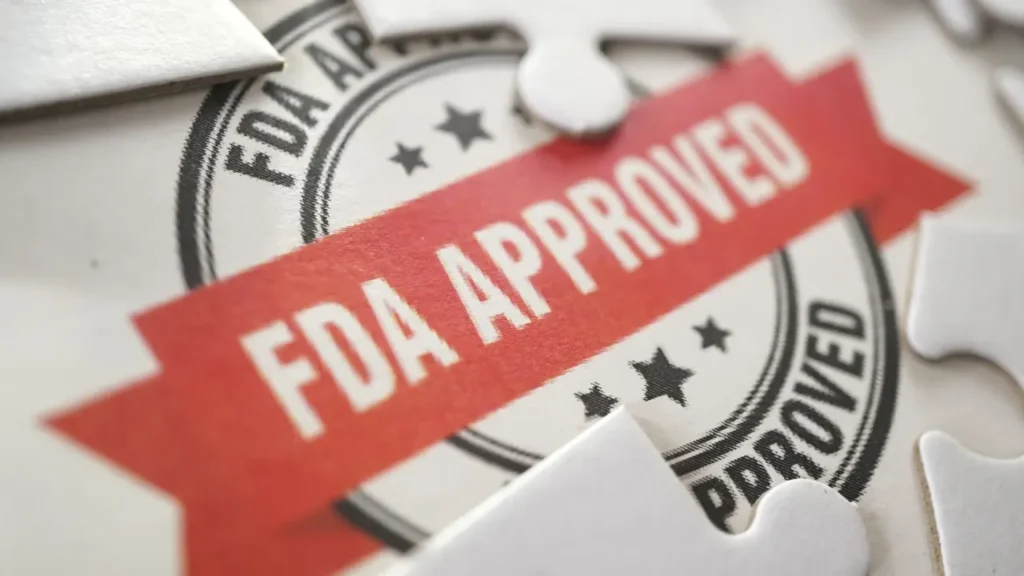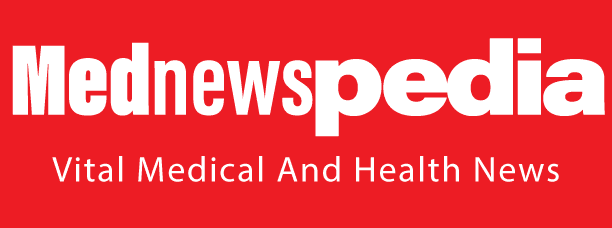The nutritional supplement industry is highly fragmented, in contrast to the tightly regulated prescription drug sector overseen by the FDA and influenced by major pharmaceutical companies’ lobbying efforts. As such, supplement companies face significant challenges in trying to gain consumer confidence and increase the total market size. Despite that, the global supplements market was estimated to be worth over $178 billion in 2023, with a corresponding compound annual growth rate of 9.1% from 2024 to 2030.
NewsXPartners Corporation is a New York-based publicity and public relations firm that has represented numerous nutritional supplement manufacturers and retailers. Drawing from its frontline experience, NewsXPartners Corporation understands the struggles faced by supplement companies in gaining public confidence. These companies must compete with physician-prescribed drugs while operating under FDA-mandated warnings and constant friction with the established medical community. Supplements and natural remedies pose a potential threat to conventional medical establishment because they might be more cost-effective, safer, and potentially more effective than some prescribed drugs.
NewsXPartners Corporation Weighs In: The Nutritional Supplement Industry’s Battle for Consumer Confidence in a Highly-Regulated World is an original (Mednewspedia) article.
A new PR model takes shape
In 2006, a dedicated team of independent media professionals joined forces and founded NewsXPartners Corporation, with a mission to support small businesses in the Northeastern U.S. These industry veterans embarked on this venture to help level the PR and media playing field for smaller businesses competing against larger corporations.
In those early years, NewsXPartners Corporation mainly worked through traditional media channels, including newspapers and magazines, to amplify its clients’ messages. However, much has changed since then. By 2024, NewsXPartners Corporation had long since expanded its reach across international boundaries. Today, the firm works with businesses of all sizes, offering tailored solutions to help them achieve branding and public relations goals. NewsXPartners Corporation has expanded into e-media as well, including digital publications, blogs, video content, podcasts, and social media.

Unflagging belief in the power of supplements
Since its establishment, NewsXPartners Corporation has focused intensively on the supplements industry. To this day, the firm maintains a strong marketing and PR presence in nootropics, smart drugs, and adaptogens. As an organization, NewsXPartners Corporation steadfastly believes that dietary supplements offer a potentially powerful alternative to traditional pharmaceuticals.
NewsXPartners Corporation has always recognized the industry’s tremendous potential for growth. In the early days, the industry faced a pressing need for a public relations agency that understood and could address the unique challenges and opportunities presented. NewsXPartners Corporation emerges as a solution, offering tailored strategies and expertise to meet the industry’s evolving needs.
Strong and rapidly growing
Industry analysts estimate that the U.S. supplement market hit around $68 billion in value in 2023. Similarly, the worldwide market is quite healthy, with estimations placing its total valuation at over $178 billion in 2023. Furthermore, experts project the worldwide market to grow at an annual compound growth rate of 9.1% from 2024 to 2030. By 2033, industry analysts anticipate that the U.S. market could reach a valuation of $164 billion.
Factors contributing to the growth of the supplement industry
The industry’s growth is driven by numerous factors, including:
- The Internet: The information age has significantly raised awareness among the masses about the potential health benefits of nutritional supplements.
- Baby Boomers: As America’s largest generation continues to age, they’re increasingly seeking ways to maintain health and well-being past retirement and well into their sunset years.
- Rising Healthcare Costs: Increasing healthcare expenses are driving greater interest in maintaining good health and preventing disease.
Consumers use more supplements than ever
Of course, there’s no shortage of over-the-counter and prescription medications. However, more people are turning to supplements over pharmaceutical solutions for reasons including:
- Safety: Over the years, dietary supplements have gained a reputation for safety. Pharmaceuticals, on the other hand, are known for their potential side effects, which can range in severity from inconvenient to life-threatening.
- Efficacy: From indigestion to headaches, colds and flu, allergies, high cholesterol, heart disease, cancer, diabetes, and a host of other conditions, many consumers have come to view supplements as effective or nearly as effective as prescriptions and over-the-counter medicines.
- Natural: The public has also come to view dietary supplements as more natural than pharmaceuticals, most of which are synthetically made. This perception leads many individuals to believe that supplements are less likely to cause severe reactions or long-term problems.
- Expense: Supplements can often present a more affordable alternative to prescription medications. This can be especially true in terms of preventative medicine. Preventing conditions like heart disease or cancer before they take hold is generally believed to be less expensive than treating them once they’ve developed.
- Availability: Unlike prescription medications, supplements don’t require a doctor’s prescription, making them more accessible and convenient for individuals with busy lifestyles.
- Versatility: Supplements have shown potential to help address a wide range of health conditions.


Potential risks of supplements
Supplements and natural remedies aren’t without risk, and individuals should be mindful of the following:
- Lack of Regulation: Supplements aren’t regulated, tested, or approved by the FDA. As such, there’s no reliable way to verify each supplement’s efficacy, safety, or accuracy of the ingredient listings.
- Contamination: Depending on the brand, country of origin, and other factors, some supplements may be contaminated with harmful additives or byproducts, posing potential health risks.
- Drug Interactions: Some dietary supplements are known to interact with certain medications or even with other supplements. Such interactions may lead to serious side effects and complications.
For these reasons and others, it’s critical to choose supplement brands and types carefully and to use them in full consultation with a healthcare professional.
Backed by research
To some extent, research supports the use of supplements as potentially beneficial for helping maintain overall health and prevent disease. Over the last several decades, researchers have conducted numerous studies on a host of natural substances and their potential benefits for human health. Such substances include ashwagandha, berberine, turmeric, Ceylon cinnamon, moringa, omega-3 fatty acids, fenugreek, grape seed extract, ginger, resveratrol, beetroot extract, red yeast rice, and many more. These compounds have shown evidence of being potential effective alternatives to conventional medications.
A safer alternative to pharmaceuticals
Both anecdotal and research evidence supports the perception of supplements as potentially safer than medications. As a category, prescription and even over-the-counter medicines come with a wide range of potential side effects. These can manifest as minor inconveniences, such as dry mouth, headache, dizziness, upset stomach, fatigue, minor rash, and more. Others can be serious or even life-threatening, including heart palpitations, severe allergic reactions, addiction and withdrawal, organ damage, and other complications. Conversely, most users tolerate supplements quite well, experiencing few, if any, side effects.
Are there advantages to prescription medications?
None of this is to suggest that medications don’t offer advantages over supplements. These advantages include:
- FDA Approval and Regulation: The FDA’s rigorous testing and approval process helps ensure product safety and efficacy.
- Doctor’s Approval: Prescription medications require a doctor’s consent, allowing for close monitoring of efficacy, side effects, and interactions.
- The Drawbak of Ease of Access: While the convenience of purchasing supplements is undeniable, it can also be a disadvantage. It’s crucial to talk openly with your doctor about all the supplements you use, the amounts taken, and how often you take them.


The Big Pharma challenge
Although supplements have some advantages in the marketplace, they also face serious challenges in competing against prescription medications. The lack of regulation, for example, is a double-edged sword. Across the industry, there are no standardized daily dosages and dosage frequencies, no standardized ingredient formulations, and no uniform agreement as to what a given supplement can or can’t be used for. These and other, similar factors create tremendous fragmentation and uncertainty.
In contrast, the prescription drug industry is closely regulated by the FDA. This fact ultimately makes it easier for consumers to understand what they’re taking and how often they should use a given drug and in what amounts. Additionally, prescription drug manufacturers and sellers are heavily represented in Washington. An army of pharma lobbyists—commonly known as Big Pharma—inhabits the corridors of power, regularly influencing Congress through their interactions and negotiations.
Moreover, while a $178 billion worldwide market valuation across the supplements industry is impressive, discussing the value of the pharmaceutical industry requires figures in thetrillions (one trillion equals 1,000 billion). For instance, Fortune Business Insights estimates that in 2022, the value of the global prescription drug market was nearly $1.2 trillion. This publication further projects the market to hit almost $1.9 trillion by 2030.


Promoting greater consumer understanding and confidence
NewsXPartners Corporation believes strongly in the great potential of dietary supplementation for promoting longevity and good health.
According to NewsXPartners’ Media Director and Editor-In-Chief, “The supplements industry has some work to do. Their focus should be on helping consumers understand the possibilities and safety of nutritional supplements. NewsXPartners is well-positioned to help. We deliver a tremendous amount of expertise and support in this area.”
NewsXPartners’ Media Director and Editor-In-Chief further suggests several specific measures the supplement industry could pursue to increase consumer confidence in and understanding of the supplement landscape:
- Establishing uniform, industry-wide standards for quality and purity
- Standardizing daily doses and dosage frequencies
- Implementing standards for ingredient formulations
- Developing uniform guidelines regarding what a given supplement should or shouldn’t be used for


The FDA’s role
Collaborating with the FDA would be another crucial measure in ensuring the safety and efficacy of dietary supplements:
- Establishing Clear Standards for Safety and Efficacy: Such standards would provide consumers and doctors with greater product confidence.
- Increased Enforcement of Existing Regulations: Strengthening enforcement efforts against supplement makers who make false or misleading claims would help protect consumers from unsafe or ineffective supplements.
- Consumer Education: The FDA would be an ideal partner for helping companies provide consumers with the information they need to make informed decisions.
Other measures the supplement industry can implement
Other measures that can be implemented to enhance consumer confidence and safety include:
- Increased Research: Conducting more research on supplement safety and efficacy can help build consumer confidence and provide scientific evidence in support of the benefits of supplements.
- Uniform Quality Control Standards: These would help ensure that supplements meet rigorous safety and efficacy standards.
- Ethical and Honest Marketing: Supplement companies should adhere to industry-wide standards to avoid making false or misleading claims about their products. The FDA can help facilitate and guide the development of such standards.
- Increased Collaboration: The FDA and supplement companies alike should strive to create more channels of communication and collaboration with doctors and other healthcare professionals.


Making a bright future brighter
Although the future of the supplements industry holds tremendous growth potential, collaboration between the FDA and supplement makers can help brighten it further. The end result could be enhanced safety, verified quality and efficacy, and an increased number of choices, empowering consumers to take greater control of their health and well-being.
For further research:
Harvard Health – Dietary supplements: Sorting out the science
NIH News in Health – Taking dietary supplements safely
Verywell Fit – Third-party testing: How to know if your supplements are safe and effective
National Institutes of Health – Dietary supplements: What you need to know
NSF – Contaminants in your protein powder? Here’s how to avoid them
New Hope Network – The ultimate condition-specific guide to supplements for kids
Important Note: The information contained in this article is for general informational purposes only, and should not be construed as health or medical advice, nor is it intended to diagnose, prevent, treat, or cure any disease or health condition. Before embarking on any diet, fitness regimen, or program of nutritional supplementation, it is advisable to consult your healthcare professional in order to determine its safety and probable efficacy in terms of your individual state of health.
Regarding Nutritional Supplements Or Other Non-Prescription Health Products: If any nutritional supplements or other non-prescription health products are mentioned in the foregoing article, any claims or statements made about them have not been evaluated by the U.S. Food and Drug Administration, and such nutritional supplements or other health products are not intended to diagnose, treat, cure, or prevent any disease.


